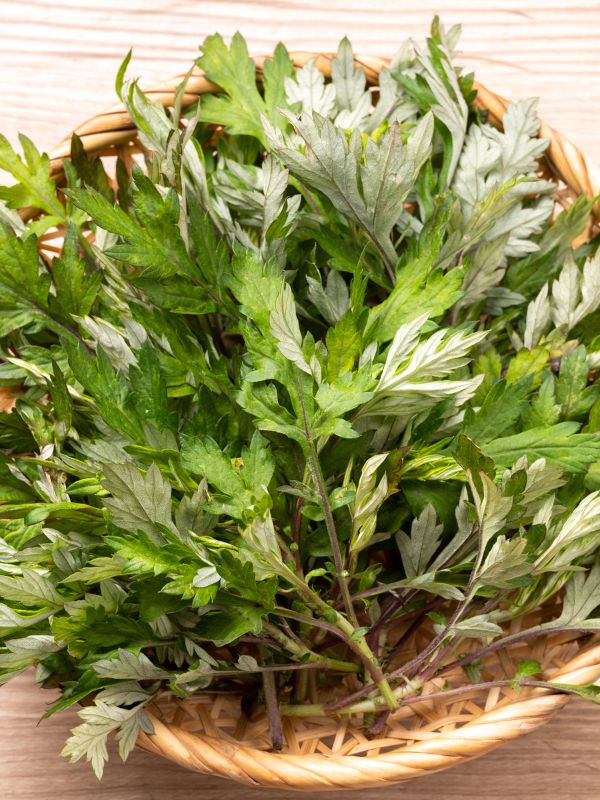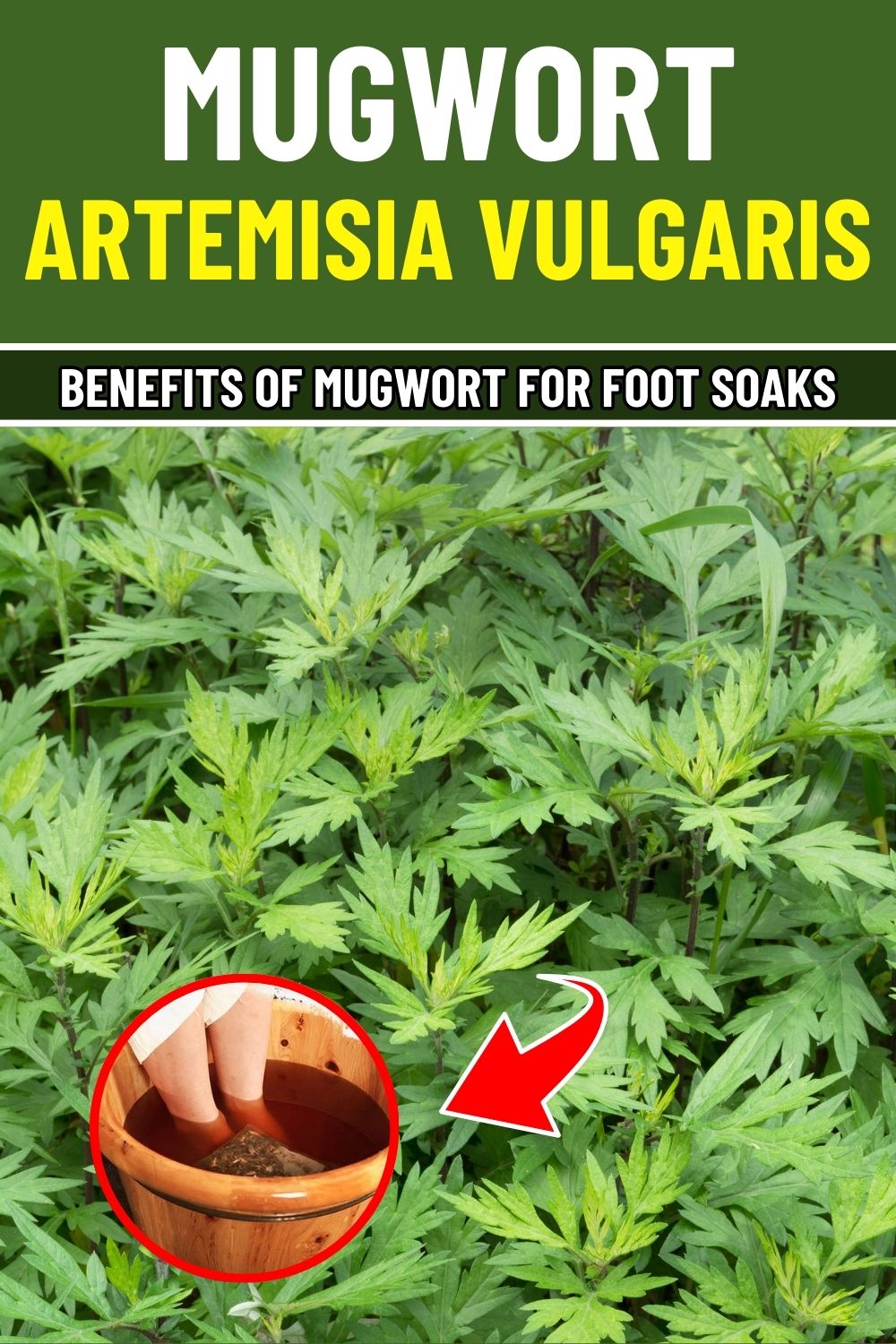Mugwort (Artemisia vulgaris), a plant long celebrated in traditional medicine, has recently gained attention for its unique applications in foot care.
Known for its aromatic and therapeutic properties, mugwort has been used in healing practices across cultures.
It’s believed to promote relaxation, improve circulation, and detoxify the body when used in foot soaks.
#1. Anti-Inflammatory Effects
Mugwort contains bioactive compounds like flavonoids and terpenoids, which are known for their anti-inflammatory properties. When used in foot soaks, mugwort can help reduce swelling, relieve aches, and soothe tired feet.
Studies by the Journal of Ethnopharmacology show that terpenoids in mugwort have potent anti-inflammatory effects, which can ease discomfort and promote relaxation in muscles and joints.

#2. Improved Circulation
Mugwort is believed to stimulate blood flow, helping alleviate cold feet and promote warmth in the body. It may also improve overall circulation, which is beneficial for reducing foot fatigue and promoting healing.
According to research in Phytotherapy Research, mugwort’s ability to improve circulation is linked to its soothing effects on blood vessels and its potential to support healthy blood flow.

#3. Detoxifying Properties
Mugwort has long been used in traditional Chinese medicine to draw out toxins from the body, particularly when used in baths or soaks.
When applied to the feet, it may help to promote detoxification through the skin, supporting overall wellness.
In traditional practices, mugwort was used to stimulate detoxification and support liver function, promoting the removal of toxins from the body, as stated by the Journal of Traditional and Complementary Medicine.

#4. Stress Relief
The aromatic qualities of mugwort are naturally calming, making it an excellent choice for mental and physical relaxation. When used in foot soaks, it can help reduce stress and anxiety, promoting a sense of tranquility.
Mugwort is often included in aromatherapy due to its ability to reduce anxiety and improve mood. The plant’s calming effects have been documented in studies focused on mental well-being by the Journal of Herbal Medicine.

#5. Promotes Better Sleep
Using mugwort in foot soaks before bed can help promote a restful night’s sleep. Its calming properties help to ease tension, relax the body, and create a sense of serenity that can support improved sleep quality.
Research from the Journal of Clinical Sleep Medicine supports the use of mugwort in promoting relaxation, making it an effective pre-sleep ritual.

How to Use Mugwort for Foot Health
1. Mugwort Foot Soak
First, boil a handful of dried mugwort leaves in water for 10–15 minutes. Next, allow the water to cool slightly, and then you can transfer it to a basin.
Finally, soak your feet in the basin for 15–20 minutes to relieve foot pain, reduce tension, and promote better sleep.

2. Direct Application to the Soles
For a simple and effective remedy, crush fresh or dried mugwort leaves to release their natural oils. Once prepared, place the crushed leaves directly on the soles of your feet.
Secure them firmly using a cloth or bandage to keep them in place. Leave the leaves on overnight to help alleviate foot fatigue and reduce inflammation, waking up to refreshed and soothed feet.
3. Mugwort Essential Oil Massage
Begin by mixing a few drops of mugwort essential oil with a carrier oil, such as coconut or olive oil. Gently massage the mixture into your feet, focusing on areas of tension or discomfort.
This massage not only provides relaxation but also helps relieve foot pain and promote overall comfort.
Cautions and Precautions
Before using mugwort in your foot care routine, perform a small patch test to ensure you don’t have an allergic reaction. Mugwort is generally safe for external use, but some individuals may have sensitivities.
Avoid using mugwort during pregnancy, as it may stimulate uterine contractions.
If you have sensitive skin or underlying health conditions, consult with a healthcare provider before incorporating mugwort into your routine.
Disclaimer
This article is for educational purposes only and is not a substitute for professional medical advice.
Always consult a healthcare provider before starting any new wellness practice, especially if you have specific health concerns or are pregnant.

Foot Soaks with Mugwort: Your Natural Solution for Relaxation, Detox, and Comfort
